
Harry Oosterhuis (1958)
harry.oosterhuis.ho@gmail.com
harry.oosterhuis@maastrichtuniversity.nl
ORCID-ID: 0000-0002-3016-0721
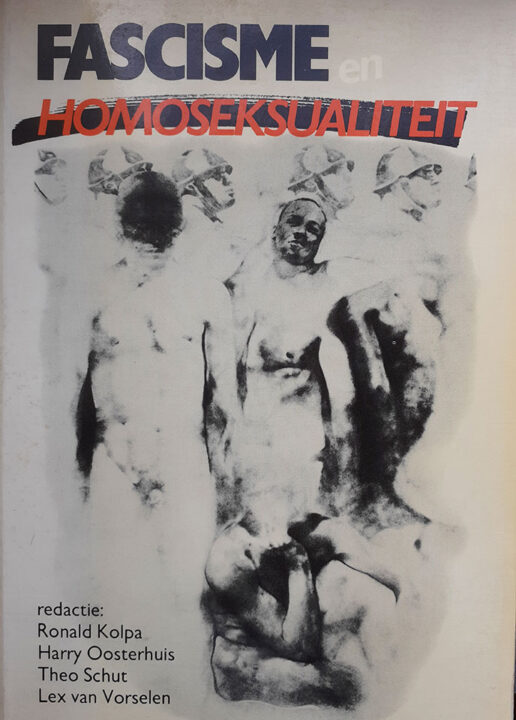
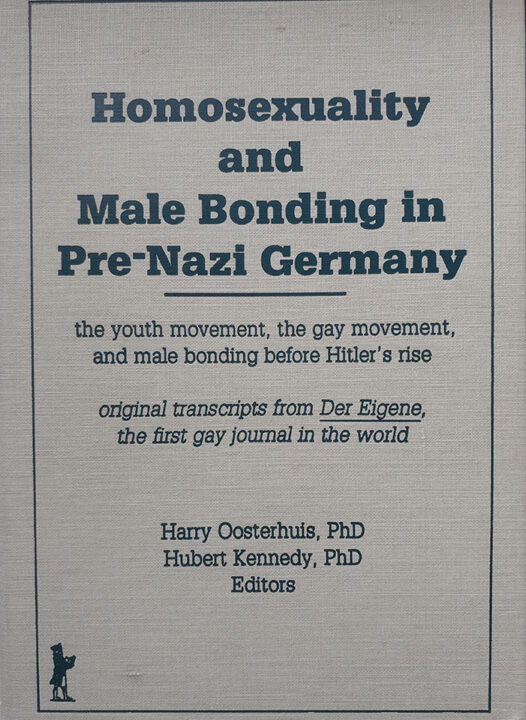
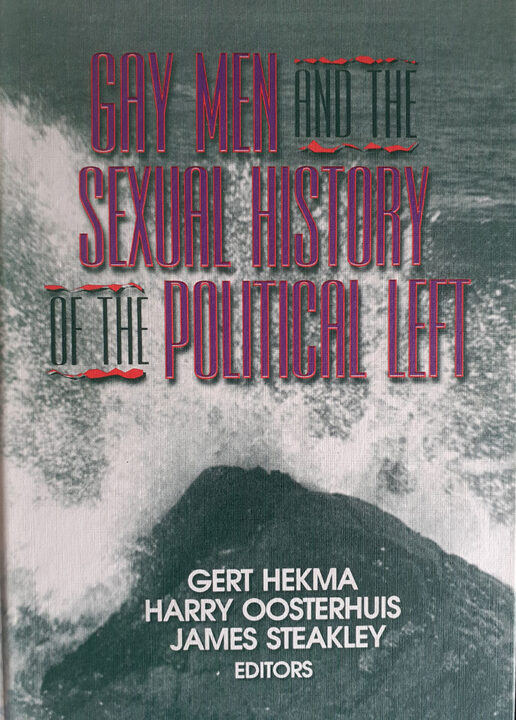
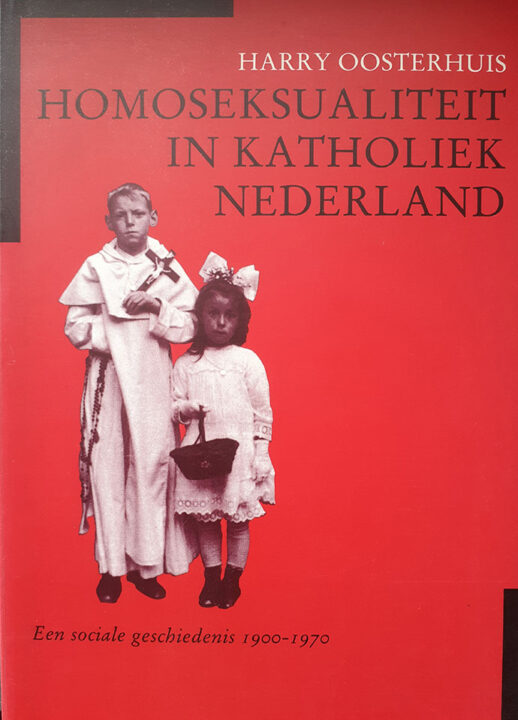
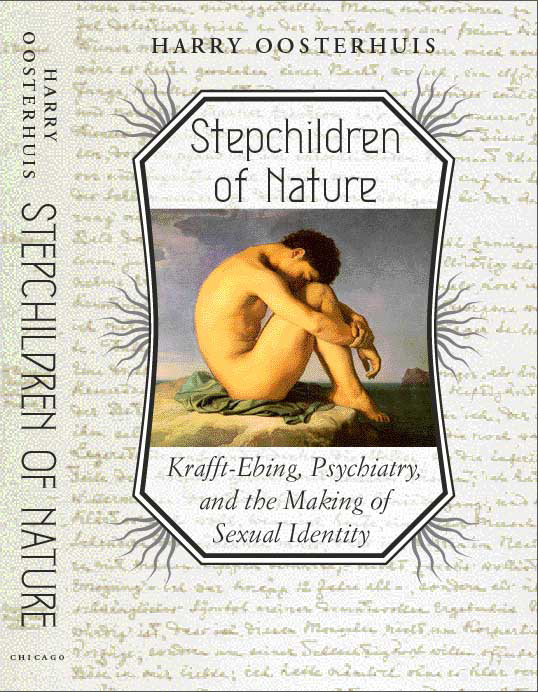
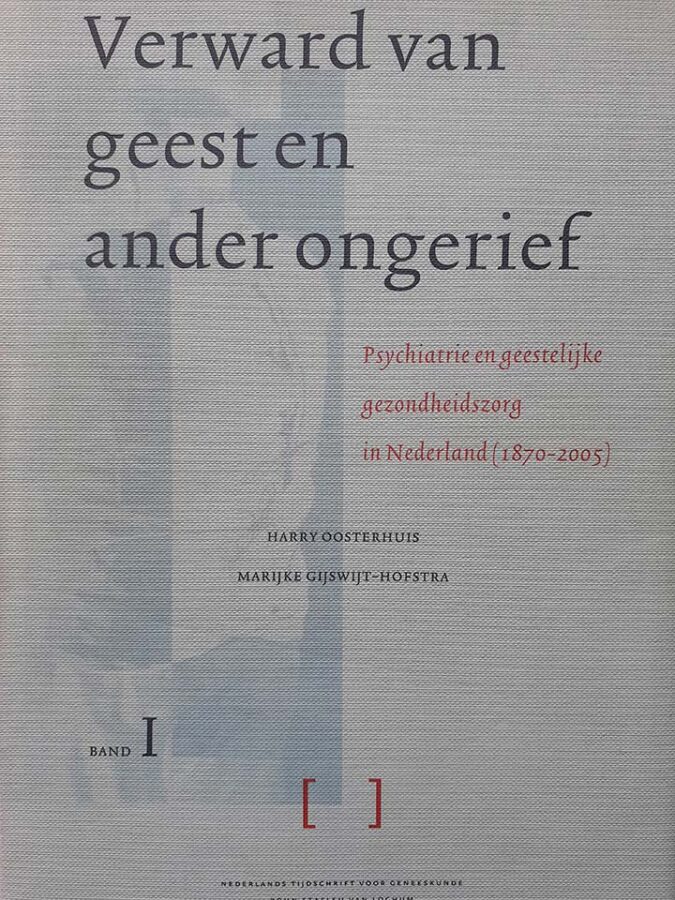
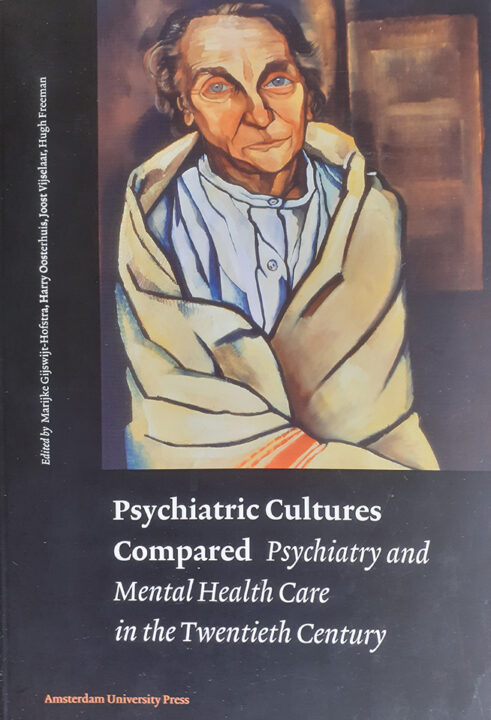
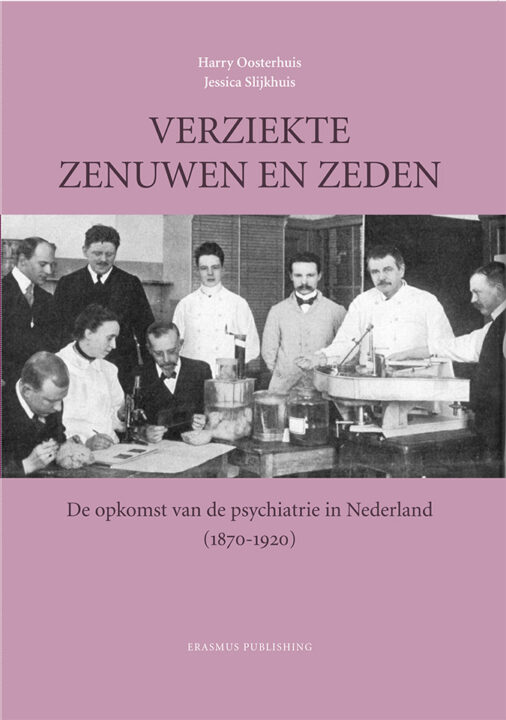
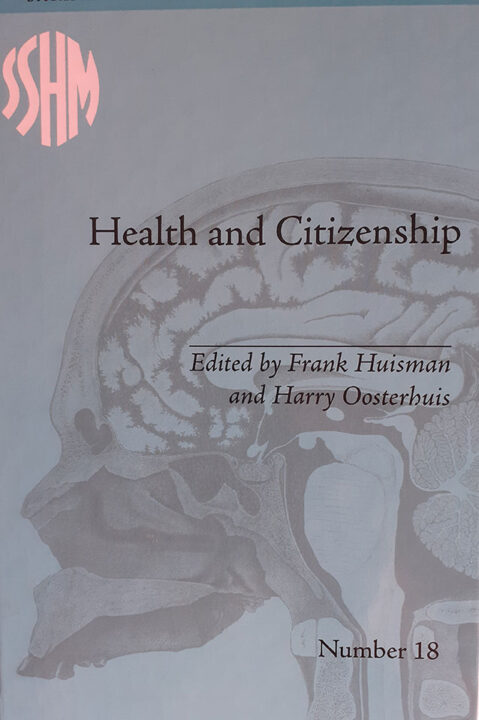
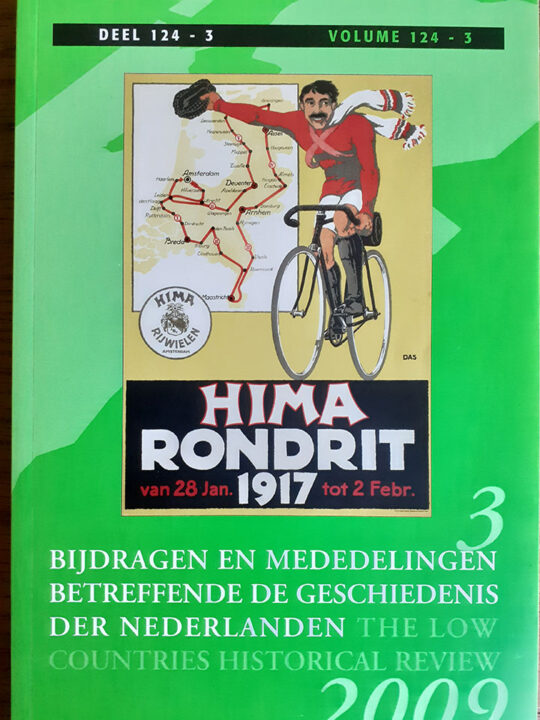
About me and this website
This website was launched on the occasion of my retirement in the spring of 2025, after an academic career spanning almost forty years. My scholarly life as a historian and sociologist was devoted to teaching and research at the universities of Amsterdam, Nijmegen and Maastricht. The main aim of this website is to provide access to my publications: 12 books and edited volumes, almost 80 articles, close to 70 chapters in books, and more than 60 book reviews. Nine unpublished writings and a small selection of my lectures and conference papers have also been included.
Under the button Bibliographies you will find various listings of the title descriptions, organized by genre (books and edited volumes, chapters, articles, book reviews, lectures and conference papers, letters to the editor) and also ordered by four main research topics (and various publications). The different publications – except those that are not free of copyright and older ones that were never digitalized – and a few of my unpublished writings, lectures and conference papers can be found, accessed and downloaded by clicking on the button History of bicycling, History of psychiatry and mental health care, History of sexuality and gender, Political history of health and citizenship, Various publications, Conference papers and presentations, Lectures and Unpublished writings.
Homosexuality and male bonding in Germany
I started out as a student of history at the State University of Groningen (1976-1983), not far from the village where I grew up on a farm. During the years 1980-1982 I also served as an editor of Groniek, a Dutch historical journal, for which I co-edited, together with two fellow students, a special issue (1982) about the history of homosexuality. In those days this was largely unexplored historical territory which emerged in the wake of women’s history, the politicized gay movement of the 1970s and the work of the French philosopher Michel Foucault. About Foucault and other recalcitrant thinkers I learned a lot in the gay studies seminars of Mattias Duyves at the University of Amsterdam. My master thesis, which I completed in 1983, addressed the Gemeinschaft der Eigenen (the Community of Self-Owners), which at the time was still a rather unknown and politically controversial branch of the early-twentieth-century German homosexual movement. In the 1980s and 1990s, I continued my research of this field, including the broader political history of male bonding, homoeroticism and gender. This resulted in several articles and three edited volumes:
- Fascisme en homoseksualiteit (Fascism and homosexuality), co-edited by Ronald Kolpa, Theo Schut and Lex van Vorselen, and published in 1985 with support from the Dutch Ministry of Welfare, Public Health and Culture;
- Homosexuality and Male Bonding in Pre-Nazi Germany: The Youth Movement, the Gay Movement and Male Bonding Before Hitler’s Rise (1992) co-edited by Hubert Kennedy;
- Gay Men and the Sexual History of the Political Left (1995), co-edited by Gert Hekma (University of Amsterdam) and James Steakley (University of Wisconsin, Madison).
In 1998 I also co-edited, together with Gert Hekma and Franz Eder (University of Vienna), a special issue of the Österreichische Zeitschrift für Geschichtswissenschaften (Austrian Journal of History) about the history of homosexuality. My former colleague and friend Gert (1951-2022) was an important discussion partner more generally, and his huge collection of historical books was very helpful for some of my research projects.
Catholicism and homosexuality
Meanwhile I had moved from Groningen to Amsterdam where, between 1983 and 1986, I served as an editor of the Dutch scholarly and cultural journal Homologie. In 1987 I became a member of the Department of Sociology at the University of Amsterdam and of the Graduate School for Social Science at the universities of Amsterdam and Leiden. Next to my training as a historian, I developed expertise in sociology, in particular the historical-sociological approach of Norbert Elias, from which I learned how the psychological dimension of man has been shaped by sociohistorical forces. My supervisor at the Sociological Institute, medical sociologist Gerhard Nijhof, raised my awareness of the importance and the problematic side of the language in which sociologists and historians express their knowledge of society and the past.
I earned my PhD in social science in 1992. My dissertation, supervised by Abram de Swaan and Gert Hekma, covers the twentieth-century history of Dutch Catholicism and homosexuality. It focuses on the changing relations between religion on the one hand and medicine, psychiatry and psychology on the other, and it is partly based on an exceptional archive containing client files from a Catholic pastoral and mental health care service for homosexuals in Amsterdam. This study – published by Sua as Homoseksualiteit in katholiek Nederland: Een sociale geschiedenis 1900-1970 for a general audience – attracted considerable media attention because of my apparently surprising argument that around 1960 Catholic psychiatrists and psychologists, as well as some progressive priests, significantly contributed to the growing social acceptance of homosexuality in Dutch society.
Arts and Social Sciences in Maastricht
After teaching gay and lesbian studies in the Department of Gender Studies at the Catholic University Nijmegen in 1991-1992, I obtained a position as assistant professor in the Department of History of the State University of Limburg, which later became part of the Faculty of Arts and Social Sciences of Maastricht University. My teaching in this strongly interdisciplinary environment covered a variety of topics, including the post-war history of the Netherlands; the history and sociology of sexuality and gender; the history of the natural sciences, medicine, the human sciences and sociology; Western modernization and democracy; the philosophy of science, political theory; and the epistemology and methodologies of historical studies.
My research formally took place within the context of the Huizinga Institute, the Dutch national research school for cultural history, and the Maastricht University research institute for Science, Technology and Society Studies (MUSTS). Specifically, I looked more closely at the history of sexology, psychiatry and mental health care, but I also studied and published on the political dimension of medicine and health as well as the history of bicycling and cycling policies. Between the mid-1990s and 2010 I was involved in the annual Anglo-Dutch-German workshops on the history of medicine, organized in cooperation with the Wellcome Institute for the History of Medicine in London and the Institut für Geschichte der Medizin of the Robert Bosch Stiftung in Stuttgart. In the 1990s and 2000s I joined the editorial boards of Journal of Homosexuality, Medical History, Journal of the History of Sexuality and Lokman Hekim Journal of Medical History and Folk Medicine.
Krafft-Ebing and Albert Moll
My best-known study, Stepchildren of Nature: Krafft-Ebing, Psychiatry, and the Making of Sexual Identity, published in 2000 by the University of Chicago Press, basically challenged Michel Foucault’s influential theory about the nineteenth-century medical construction of modern sexual identities and its disciplining effects. Although medical and psychiatric thinking played an important role in the making of sexual categories and identities indeed, this did not necessarily imply that these merely developed in response to scientific inventions and were imposed from above by biased and stigmatizing doctors. On the basis of numerous case histories, personal letters and autobiographical accounts by Richard von Krafft-Ebing’s patients and correspondents, I argued that many of them can hardly be characterized as passive objects of the psychiatric gaze and medical power; instead, many stood up for themselves and asserted their identities on their own terms. Their experiences, self-reflections and life stories advanced a ‘modern’ understanding of sexuality, which could only have had a lasting social impact through their interaction with Krafft-Ebing as a leading psychiatrist and author of the many editions of the bestselling Psychopathia sexualis (1886-1903).
At the moment I am working on an updated second edition of Stepchildren of Nature. Through my research of the work of Krafft-Ebing I also grew familiar with the significant work of another German pioneer of sexology, the neurologist Albert Moll (1862-1939), who has rather been overlooked and misunderstood by historians. My articles about Moll’s ingenious and innovative explorations of sexuality in biological, psychological as well as cultural terms will contribute, I hope, to a historical rehabilitation of this controversial scholar’s work.
History of psychiatry and mental health care
Together with Marijke Gijswijt-Hofstra, professor of history at the University of Amsterdam, I coordinated the research project The Disordered Mind: Theory and Practice of Psychiatry and Mental Health Care in the Netherlands during the Twentieth Century. This project, involving around ten scholars and funded by NWO, the Netherlands Organisation for Scientific Research, started in 1999. It has resulted in several dissertations and books such as the international collection Psychiatric Cultures Compared: Psychiatry and Mental Health Care in the Twentieth Century – Comparisons and Approaches (2005), which I co-edited with Marijke Gijswijt-Hofstra, Joost Vijselaar (University of Utrecht) and Hugh Freeman (University of Salford). Together with medical historian Michael Neve (University College London), I edited a special issue of Medical History (2004) on twentieth-century developments in British, Dutch and German social psychiatry and psychotherapy. The NWO project culminated in Verward van geest en ander ongerief: Psychiatrie en geestelijke gezondheidszorg in Nederland (1870-2005) (Mental confusions and other discomforts: psychiatry and mental health care in the Netherlands, 1870-2005), co-authored by Marijke and published in 2008. This three-volume work provides a comprehensive and contextualized history of institutional and social psychiatry, neurology, forensic psychiatry, the mental health movement and the broad field of outpatient mental health care and psychotherapy in the Netherlands from around 1870 until 2005. We also compare Dutch developments in psychiatry and mental health care with those in some other major Western countries.
Together with former graduate student Jessica Slijkhuis, who analyzed many historical patient files, I published another a book-length study devoted specifically to the rise of Dutch psychiatry during the late nineteenth and early twentieth century: Verziekte Zenuwen en Zeden: De Opkomst van de Psychiatrie in Nederland (Diseased Nerves and Mores: The Rise of Psychiatry in the Netherlands, 2012). Cecile aan de Stegge, whose dissertation about the history of psychiatric nursing I co-supervised, and whose contribution to the project The Disordered Mind was invaluable, should also be mentioned here as co-author of a number of articles about the history of psychiatry and psychiatric nursing.
Jointly with Arlie Loughnan (professor of criminal law at the University of Sydney), I edited a collection of articles about the history of forensic psychiatry in different Western countries, which appeared as a special issue of the International Journal of Law and Psychiatry (2014). My research into the history of psychiatry triggered my interest in the political implications of psychiatry and also of medicine in general, in particular their relation to democracy and citizenship. Health and citizenship featured as basic theme of an Anglo-Dutch-German medical history conference which I organized with medical historian and colleague Frank Huisman in Maastricht in 2005. This project eventually resulted in the edited volume Health and Citizenship: Political Cultures of Health in Modern Europe (2014; second edition 2016).
Bicycling
Encouraged by my colleague historian and cyclist Manuel Stoffers, I turned one of my favorite pastimes, bicycling, into another research topic. From 2009 on, I published several articles, chapters and book-reviews (some of them co-authored by Manuel Stoffers) about the history of bicycling, focusing on its cultural, social and political dimensions as well as its very diverse patterns in different Western countries. These aspects are largely ignored by policy-oriented bicycle-researchers, traffic engineers, urban planners and policymakers, who tend to follow a rather one-dimensional technocratic approach. My overall aim was to introduce a cultural-historical perspective in the world of bicycle policy research and to put up for discussion its one-sided empirical-positivist paradigm. Unfortunately, my efforts to break disciplinary and paradigmatic boundaries in bicycle studies have not been successful.